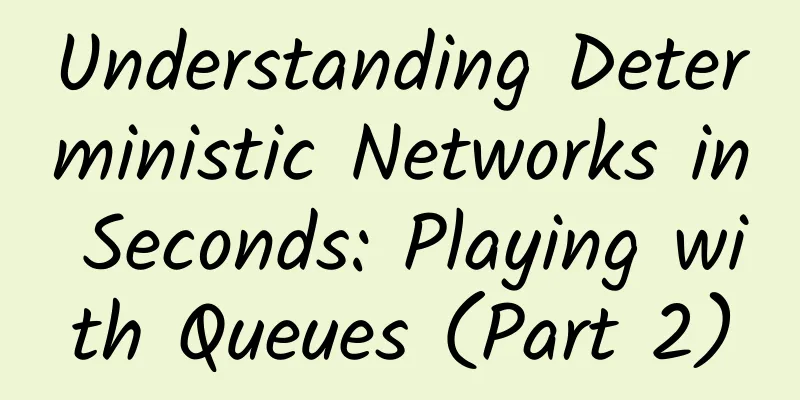Never use weak passwords again, be careful of your home routers and devices becoming zombies

|
Nowadays, there are more and more devices connected to the Internet in the home. Mobile phones, tablets, computers, TVs, cameras, smart speakers, etc. all need network access. It is not uncommon for a family to have 20+ Internet-connected devices. As a result, the security of the home network is particularly important. Think about your home WiFi password and router management password. Are they too simple? Commonly used weak passwords in 2021 (Image source: NordPass) Every year, cybersecurity agencies publish a list of the most insecure passwords of the year, and "12345", "12345678", "qwert", "password" and so on are always at the top. Moreover, no matter how cybersecurity agencies and the media remind us, the frequency of use of the above password combinations has not decreased at all. This gives criminals hiding in the network an opportunity to take advantage of it. There are more and more Internet-connected devices at home (Image source: allhomecinema) Once our wireless router is controlled by hackers, it may lead to personal privacy leakage and property loss. What’s more frightening is that even normal life will be affected. Hackers can arbitrarily control our lights, sockets, televisions, refrigerators, and even toilets, causing users unbearable pain and exposing their lives completely to criminals. Nowadays, we don’t pay much attention to the security of wireless routers. At most, we set a wireless password and then no longer pay attention to it. I believe that the little protection measures taken by most of my friends are not very secure. They often use the same numbers or logical numbers as WiFi passwords for easy memorization. This leaves an opportunity for criminals to crack WiFi, and they can easily crack our WiFi password. By the way, anyone who even sets such a simple WiFi password, not to mention the background password of the router, must be "admin". Hackers control user devices to launch DDoS attacks (Image source: link11) In this way, criminals can easily control our wireless routers and further invade our mobile phones, tablets, computers and other daily devices. What’s even more frightening is that after hackers take control of the home router, they will implant Trojan viruses into the user’s various Internet devices and then steal the privacy and property of the infected devices. They can even infect the devices of visiting relatives and friends through the user's device, and then infect their home Internet devices after they return home. In addition, hackers can control these infected devices to launch DDoS attacks on their own targets, making the user's own home Internet devices become "zombies" for hackers to attack other people's networks. Here we recommend that friends first enhance the security of their WiFi passwords by using "letters + numbers + symbols" and choosing WPA2 and above encryption methods. This will give them strong security, and it will be difficult for general criminals to decipher such passwords. Change the router login username and password In addition, do not use the same password as the one you use to connect to WiFi as the password for the router management backend. You need to set a more complex password separately. Finally, we need to turn off the "remote management" option in the router's backend management to avoid remote attacks by criminals and further improve the security of the home network. |
<<: 22 pictures to explain OSPF: the most commonly used dynamic routing protocol
>>: How far is 400G from true commercial deployment?
Recommend
Analysis of SpringCloud Gateway routing configuration and positioning principles
[[409660]] Environment: springcloud Hoxton.SR11 T...
Health and Risk: A New Model for Data Center Capacity Management
Some analysis companies believe that capacity man...
The operators’ new tiered packages, aren’t they still “the same bowl of soup”?
In the past, mobile phone users would go out like...
Vietnam's three major operators reach 5G RAN equipment sharing agreement
[[404902]] Vietnam’s three largest operators, Vie...
Replacing with a new one doesn’t work? Learn how to adjust the wireless router signal
Whether it is Tieba, Weibo or the discussion area...
In the era of full intelligence, adapt with intelligence | H3C shares its network innovation blueprint at the 4th Future Network Development Conference
From August 14 to 15, New H3C Group, a subsidiary...
Why does 5G require huge investment, but the final experience feels not much different from 4G?
Many people say that the reason why 5G is not ver...
Thoughts and insights on cloud resource orchestration
[[414382]] 1. Background On July 9, 2018, I joine...
Detailed explanation of the three major communication methods between microservices: Gateway API, RPC and SideCar
[[442456]] 0. Introduction I believe everyone is ...
JuHost: Hong Kong Kowloon VPS 40% off from $2.99/month, Japan VPS 30% off from $3.49/month
JuHost is a foreign hosting service provider esta...
Division of wireless AP channels in WLAN
What is a channel? Channel is commonly referred t...
How to connect Pod in K8S cluster with local network for debugging
[[404039]] Preface As we all know, when there is ...
Ping An Technology and Huawei Sign Intelligent Network Joint Innovation Cooperation Agreement to Promote Digital Transformation in the Financial Industry
On April 18, at the 2018 Huawei Global Analyst Co...
The battle between 4G+ and all-network service triggered by mysterious letter
Recently, a local company of a certain operator s...
EtherNetservers: $14.95/year-1GB/40G SSD/1TB@10Gbps/Los Angeles & New Jersey & Miami data centers/Alipay supported
EtherNetservers is a rare hosting company that st...









